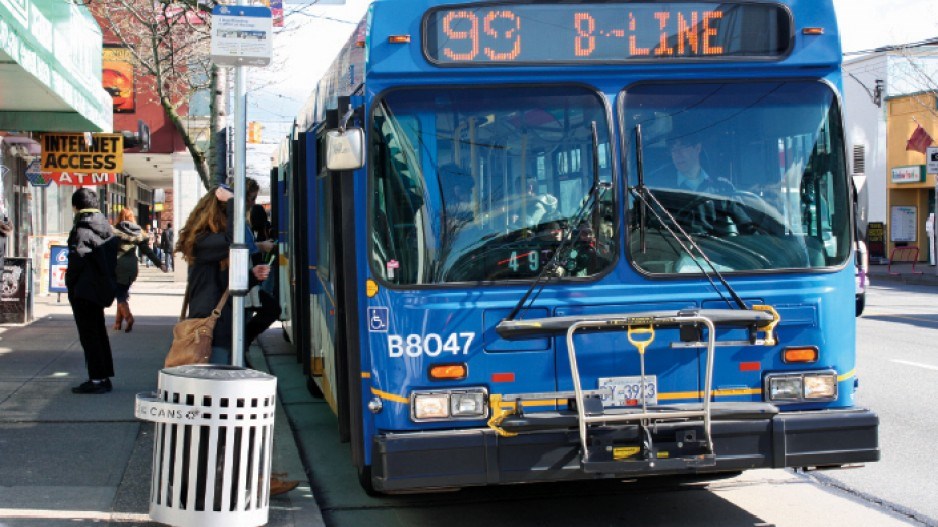At a transit conference held October 31, Metro Vancouver mayors and economists outlined a scary outcome for the region if Lower Mainland residents vote “no” on an upcoming transit referendum that is expected to ask for increased funding for TransLink.
“It would be disastrous to have a negative outcome on the referendum for transit,” Vancouver mayor Gregor Robertson told reporters.
“You’re hearing from the business community, you’re hearing from economists, you’re hearing from the labour movement that it is clear and crucial we look at this beyond the political context,” said Dianne Watts, mayor of Surrey.
The free October 31 conference was an attempt to engage the public in a discussion about the importance of transit to the region’s economy. Metro Vancouver planners expect the population to grow by 1.2 million people by 2040, but if governments can’t agree on a stable way to fund transit, economic growth could stagnate, argued conference participants.
“The risk is not that we’re going to over-invest in transportation,” said Ken Peacock, chief economist with the Business Council of B.C. “I think we’re going to underinvest. To me, it’s really a story of, as much as we can afford, get it done and get it in place.”
The regional mayors have been uniformly against Premier Christy Clark’s plan to hold a referendum on transit funding, first announced in April during the provincial election campaign. The referendum could take place as early as next spring or as late as November, during the 2014 municipal election.
After months of discussions between the mayors and transportation minister Todd Stone, the province has yet to reveal the question or set out who will lead and fund the referendum campaign.
The province has rejected several funding suggestions brought forward by the mayors, including a vehicle levy and fare increase. In March, TransLink’s mayors’ council endorsed road pricing as their preferred solution.
Transportation problems, whether it’s gridlock or not enough buses, affect where people choose to live and work, and where companies choose to set up offices, said Gavin McGarrigle, B.C. director of Unifor.
Transit advocates have warned that the referendum risks being a decision on TransLink, not transit funding in general. With TransLink viewed by the general public as an overly bureaucratic and unaccountable institution, more work needs to be done to get the public on side, said conference participants.
McGarrigle called for a more accountable governance model not only for TransLink, but for Port Metro Vancouver and BC Ferries.
“The public needs to think, you’re going to pay one way or another,” said Peacock. “You’re going to pay in terms of your time sitting in traffic, or you’re going to pay whatever it may be, a toll or a higher fare to get on a bus or Skytrain service.”
“Alternatively you’re going to be paying through higher taxes,” added Stephen Toope, president of the University of British Columbia, “because the economic development won’t have taken place and somehow services have to be funded.”
@jenstden




